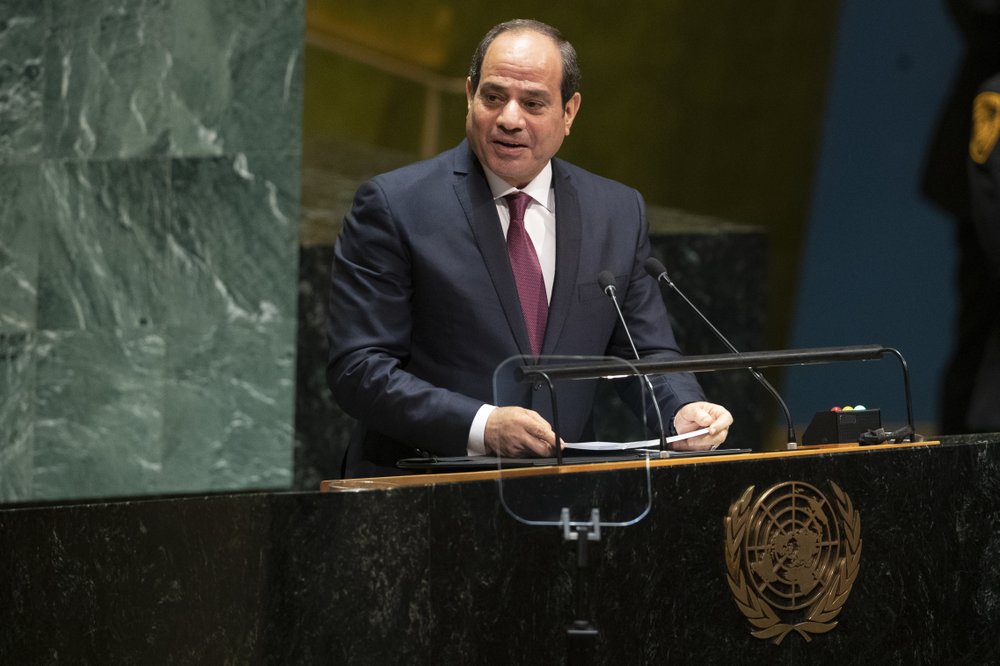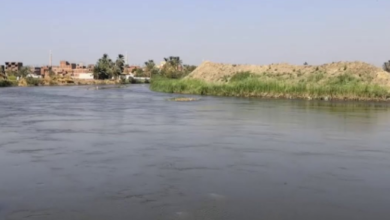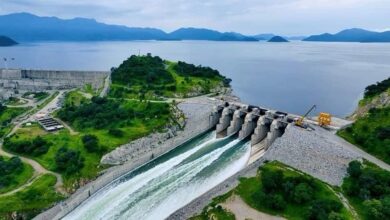
Egyptian President Abdel Fattah al-Sisi met with a number of newspaper editors and media personalities on the sidelines of the opening of an integrated animal production project in Fayoum on Wednesday, which was attended by Prime Minister Mostafa Madbouly and various ministers.
The meeting touched on a number of local and regional issues, including Egypt’s economy and ongoing negotiations over the Grand Ethiopian Renaissance Dam.
On the role of young people in governance, Sisi commented “Nobody asked Egypt to appoint youth to deputy governor positions. The country belongs to all of us,” adding “The idea of appointing young people (is about) giving ourselves an opportunity to form a complete picture, because Egypt is a country for all Egyptians.”
The President also discussed economic issues and ongoing reform efforts: “The state is keen on implementing administrative reform, which includes the industrial sector, (in order to achieve) a better future for employment and to improve the economy.”
“We are capable of meeting our challenges through stability,” Sisi added, going on to say that “maintaining the strength of state institutions” is key for continuing the state’s ongoing development projects.
He added that there continue to be “great challenges,” especially in sectors related to the general public, because “we (the government) cannot take harsh measures that affect citizens.”
“Although there has been a decrease in prices, there exists a large segment of our people who (continue to) face difficult circumstances,” Sisi admitted, adding that the Egyptian economy is “recovering,” citing electricity and transportations projects.
“Thanks to the recovery of the Egyptian economy, the dollar is set to retreat more than it is now,” he said, referring to December reports showing that the US dollar exchange rate has made a new record decline against the Egyptian pound, falling below the LE16 mark for the first time since February 2017.
Egypt cut subsidies in 2016 in line with a $12 billion bailout from the International Monetary Fund and floated the exchange rate of the pound to ease the pressure on demand for the dollar, leading inflation rates to accelerate to 33 percent, which was accompanied by a sharp decline in earnings, according to Bloomberg.
However, inflation has declined, approaching the lowest level in years, according to a November report from Bloomberg, which indicated that profits recorded by Egyptian companies have returned to pre-November 2016 rates.
Meanwhile, activity in the country’s non-oil private sector contracted in November for the fourth consecutive month, falling to its lowest since September 2017, according to a report from Reuters.
On the subject of local governance, Sisi asserted the importance of municipalities, asking “Why don’t we put up municipal elections for a community dialogue among intellectuals in order to reach a vision that can be implemented in this regard?”
The President also stressed that the government is “working very quickly to solve problems that have accumulated over the past 20 years.”
Sisi’s statements on the regional level focused on the crisis in Libya and ongoing negotiations for the Grand Ethiopian Renaissance Dam (GERD).
“Achieving stability in Libya is in the interest of the Egyptian state,” Sisi said, adding, “We look forward to the unity of Libyan land and achieving the will of the people there.”
“Egypt is a real pillar for the return of stability to the entire region,” Sisi concluded.
Meanwhile, the Egyptian President said that “negotiations on the Renaissance Dam are proceeding properly,” going on to say that “Our (Egypt’s) water demands are not for the sake of development, but for life.”
Washington kick-started GERD negotiations on November 6 with a meeting between the delegations of Egypt, Ethiopia and Sudan, which was attended by the US Secretary of State and the president of the World Bank Group. The delegations of the three countries agreed during the Washington meeting to reach an agreement on filling the dam by January 15, 2020.
Earlier in October, the Egyptian Ministry of Water Resources and Irrigation said that negotiations with Ethiopia had reached a dead end after the two sides failed to arrive at an agreement on filling the GERD.
Egypt relies considerably on the Nile for freshwater and has voiced anxieties that the GERD would negatively impact its water supply since Ethiopia began construction of the dam. Ethiopia, however, has maintained the importance of the project to the Ethiopian economy.



